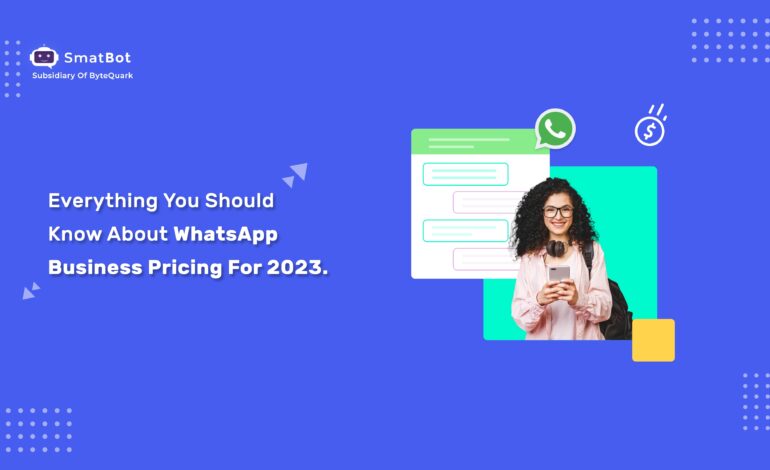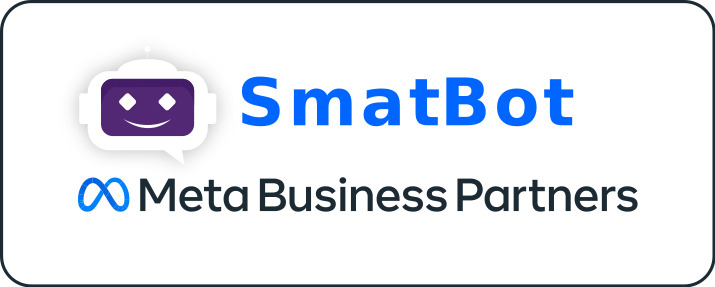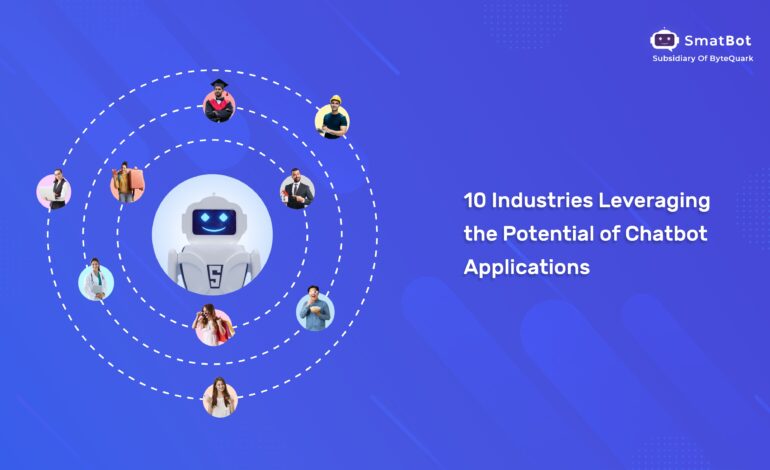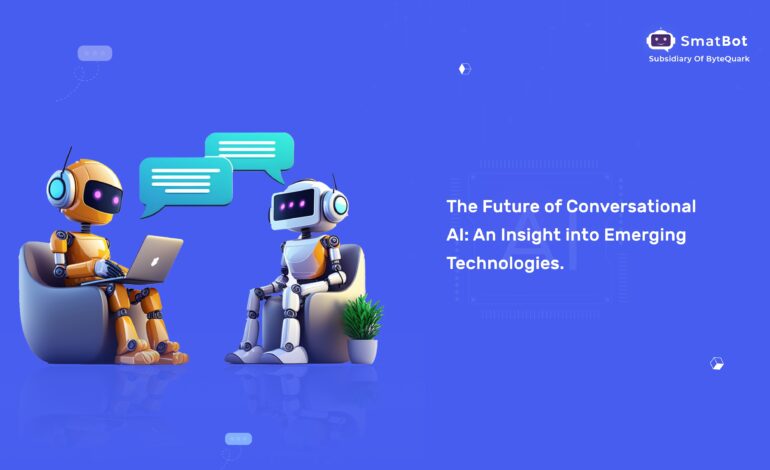Everything You Should Know About WhatsApp Business Pricing For 2023

With more than 2 billion active users, WhatsApp is an incredibly powerful platform for startups and businesses to connect with their customers and establish a strong online presence. WhatsApp Business, which was created specifically for businesses, caters to the unique requirements of each type of business. It has revolutionized the way businesses communicate with their customers, opening up new avenues for engagement and interaction.
However, as with any service, there are costs associated when utilizing WhatsApp Business for your business needs. Keeping track of costs and making informed decisions can be challenging for businesses due to WhatsApp’s changing pricing structure and policies. And that’s where we come in.
In this article, we will comprehensively summarize the latest pricing plans and policies for WhatsApp Business in 2023. We will also cover all the important aspects of WhatsApp Business pricing. By the end of this article or guide, you will clearly understand the costs involved in using WhatsApp Business.
So, without further ado, let’s dive in.
Two Types of WhatsApp for Business

WhatsApp Business is a versatile platform that is compatible with multiple operating systems, including iOS and Android. It enables businesses to handle a variety of tasks. Some of the key functionalities of WhatsApp Business include showcasing products or services, establishing direct connections with customers, and more.
There are two types of WhatsApp for business that you can choose from:
Whatsapp Business
WhatsApp Business was officially launched in 2018 specifically for small businesses, enabling users to use two WhatsApp accounts on the same phone. The apps can be easily differentiated by their distinct logos.
One notable feature of WhatsApp Business is the ‘quick replies’ feature, which allows businesses to send predefined responses to frequently asked queries. Additionally, WhatsApp Business offers features like sending greeting messages, setting away messages, labeling conversations, and more.
Businesses often choose WhatsApp Business because it enables them to send professional messages to clients free of charge. The app’s popularity extends beyond the business sector due to its ability to send complimentary messages directly to clients’ devices as long as they have an internet connection.
Whatsapp Business API
The WhatsApp Business API was created with medium to large businesses in mind. It allows businesses to connect with international clients and is designed to handle large volumes of messages.
Companies can integrate their existing business solutions by developing and programming a business API. In addition, the API can support a large number of users and devices. This API can also be used to send notifications to their clients.
The WhatsApp Business API’s best feature is that it allows businesses to automate communication through automated responses. In a nutshell, the WhatsApp Business API helps businesses create a personalized communication flow. This approach is tailored to their customers’ needs.
Session Message Vs. Template Message
There are two types of messages in the WhatsApp Business API: session messages and template messages. Both are the most frequently used messages in the WhatsApp Business API.
Session messages refer to messages exchanged in response to user-initiated actions. When a business receives a message, the session begins and lasts 24 hours in the context of the most recently received message. An example of a session message is when a user contacts a business with a product inquiry.
Template messages, on the other hand, are intended for people who have agreed to receive messages from your company. They are convenient, time-saving, and efficient means of communication.
Template messages can be used for various purposes, such as alerts, notifications, payment reminders, and more. Customers rely on these messages for a range of reasons. However, it is important to note that these templates require pre-approval from WhatsApp.
A New Model of WhatsApp Business Conversation

Starting June 1st, 2023, WhatsApp will change its pricing structure, moving from a two-conversation-based model to a four-conversation-based model. The conversation-based pricing approach will now include four conversation categories instead of two.
Under the new pricing model, business-initiated conversations will be classified into utility, marketing, and authentication categories. User-initiated conversations, on the other hand, will be classified as service conversations, allowing customers to efficiently resolve their queries.
Furthermore, WhatsApp is introducing a new feature called ‘conversation metric,’ which will provide information about the effectiveness of messages. This feature is expected to be available in the second half of this year.
Furthermore, businesses will soon have access to performance data through WhatsApp Manager. This data will include information on message sends, reads, and top block reasons across the utility, marketing, and service categories. Moreover, marketing messages will have their own rates, media views, and click-through rates enabling businesses to evaluate the effectiveness of their marketing campaigns.
Meta’s New Pricing System
There will be four conversation categories that will be applied to the template approval as of June 1, 2023. The four categories of the new pricing system are listed below-
- Utility Conversation
Utility conversations fall under the category of business-initiated conversations. The business initiates these conversations, which are based on user opt-ins. They serve the purpose of facilitating specific, agreed-upon requests or transactions. Utility conversations can also be used to provide updates to customers regarding ongoing transactions, such as post-purchase notifications and recurring billing statements
- Authentication Conversation
An authentication conversation is another type of business-initiated conversation. It enables secure account access by sending one-time passwords (OTPs). Users opt for this type of conversation, which allows businesses to authenticate users using OTPs, potentially at multiple steps in the login process.
- Marketing Conversation
Marketing conversations are also categorized as business-initiated conversations. These conversions include promotional messages, offers, informational updates, and more. They may also include invitations that require a response from the customer.
- Service Conversation
A service conversation refers to any conversation initiated by a user to inquire about a product or resolve an issue. For instance, when a customer messages you looking for a solution after experiencing a problem with your product or service.
Implications for Large and Small Businesses
Many startup owners still need to enhance their skills and technology infrastructure to fully leverage the power of the internet to reach their customers. WhatsApp Business can serve as an ideal platform for them, facilitating professional communication and helping them establish their online presence while allowing them to estimate their overall expenses.
WhatsApp for business can be a valuable addition for larger businesses with robust market growth. It provides speed, responsiveness, and convenience to larger companies. It also plays a crucial role in enhancing a more comprehensive digital strategy.
What’s New in the Pricing Change for WhatsApp Business?

Starting from 1st June, several new features and aspects of WhatsApp for Business will be available to you. We aim to provide comprehensive details regarding these changes to WhatsApp. Below, we have outlined the key changes that you can expect to see in WhatsApp for Business from 1st June 2023.
- Extended CTWA Chat Window Of 72 Hours.
META has increased the free conversation time that starts with a click on WhatsApp ads on Facebook and Instagram. This will allow you to chat with your customers or clients for up to 72 hours without paying a penny to WhatApp.
- Migration of New Categories
WhatsApp Business has created three new template categories: utility, authentication, and marketing. All your existing messaging templates will be migrated into these three new template categories. With the rise of these template categories, you can expect better pricing, faster approval, and improvement.
- Service Conversation
Starting June 1st, 2023, the term “service conversation” will replace the term “user-initiated conversation.” This means that all conversations initiated by users will be referred to as service conversations following the implementation of the new pricing model.
Conclusion
Businesses using this popular messaging platform must be aware of the pricing for WhatsApp Business in 2023. As WhatsApp evolves, businesses must stay up-to-date with the latest pricing updates and policies. By doing this, businesses can make informed decisions about effective customer communication and maximize their return on investment


